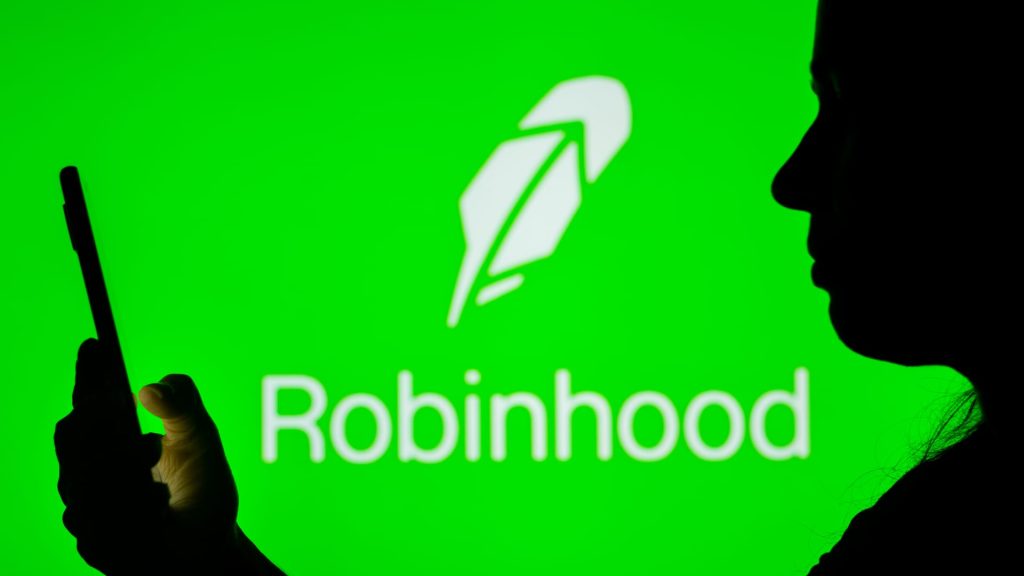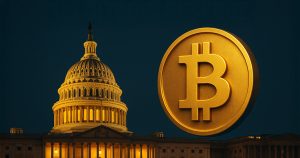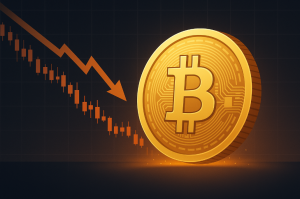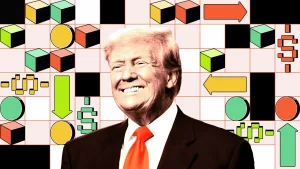Robinhood CEO Vlad Tenev Comments On BTC Rally & Paul Atkins’ Nomination

Summary
- Bitcoin surpasses $103,900, driven by institutional adoption and Fed Chair Powell’s comparison to gold.
- Robinhood reports a 400% spike in crypto trading volume, processing $30B in November amid the BTC rally.
- Paul Atkins’ SEC nomination sparks hopes for crypto-friendly policies under a Trump-led administration.
Bitcoin’s price has surged past the $100,000 mark for the first time, generating significant attention from financial experts and business leaders alike. The cryptocurrency’s rapid rise has fueled conversations about its growing role in the global economy and its potential to reshape traditional financial markets. Many analysts are now reassessing their views on Bitcoin, considering its increasing institutional adoption and its potential as a store of value, much like gold.
In a recent interview on CNBC’s Squawk Box, Robinhood CEO Vlad Tenev weighed in on Bitcoin’s impressive rally. Tenev discussed the factors driving Bitcoin’s price surge, including the growing institutional interest in the asset. He emphasized that more traditional financial players are now embracing Bitcoin as a legitimate investment option, which has contributed to its upward momentum. Tenev also noted that the cryptocurrency’s price growth is not purely speculative but is increasingly backed by real-world use cases and adoption.
Another key point Tenev touched on during the interview was the recent comments from Federal Reserve Chair Jerome Powell, who compared Bitcoin to gold. Powell’s remarks added further fuel to the debate about Bitcoin’s potential to become a safe-haven asset similar to precious metals. Tenev highlighted that Powell’s endorsement signals a shift in mainstream acceptance of Bitcoin, especially as investors seek alternative stores of value amidst inflation concerns and global economic uncertainty.
The interview also addressed the nomination of Paul Atkins to lead the U.S. Securities and Exchange Commission (SEC). Tenev expressed optimism about Atkins’ potential to introduce more crypto-friendly policies under a Trump-led administration. With a history of supporting deregulation and a pro-business stance, Atkins’ appointment could pave the way for clearer regulatory frameworks for digital assets. This would provide more certainty for investors and businesses in the cryptocurrency space, which has been grappling with regulatory ambiguity.
As Bitcoin continues to break records and attract attention from both institutional and retail investors, discussions about its future are intensifying. Tenev’s insights offer a glimpse into the factors behind the cryptocurrency’s rise and the shifting regulatory landscape that could shape its path forward. With Bitcoin’s price surpassing $100,000 and more favorable policies on the horizon, the digital currency’s role in the financial ecosystem is only expected to grow.
Bitcoin’s Status Grows Stronger as It Reaches Record Price Milestone
Vlad Tenev recently reflected on Bitcoin’s dramatic shift in perception over the past decade. He pointed out that Bitcoin has evolved from being ridiculed and dismissed to now being taken seriously by investors and financial experts. Tenev’s remarks highlight how the cryptocurrency’s journey has transformed it from a niche asset to a major player in global markets. The surge in Bitcoin’s price, which surpassed $103,900, is a clear sign of this transformation, driven in part by increasing institutional interest and evolving regulatory landscapes.
The growing institutional adoption of Bitcoin has played a significant role in its price surge. Tenev noted that large financial players are now recognizing Bitcoin as a legitimate asset, not just a speculative venture. This shift in institutional interest, along with favorable regulatory developments, has contributed to the cryptocurrency’s upward momentum. Federal Reserve Chair Jerome Powell’s recent comments about Bitcoin further fueled this optimism, signaling greater acceptance of digital currencies.
Powell’s remarks, which likened Bitcoin to gold as a speculative asset, added to Bitcoin’s growing legitimacy. He stated that Bitcoin competes with gold, not the U.S. dollar, emphasizing its role as a store of value rather than a currency for everyday transactions. Crypto advocates welcomed Powell’s comparison, seeing it as a sign that Bitcoin is increasingly being recognized as a serious asset class. His statement reinforced the idea that Bitcoin is carving out its own space in the financial world, separate from traditional currencies.
Robinhood, a popular platform for cryptocurrency trading, has seen significant growth in crypto activity. In November, the platform reported a 400% increase in crypto trading volume compared to the previous month. This surge reflects the broader rise in digital currency interest, with Bitcoin leading the charge. Robinhood processed over $30 billion in crypto transactions during the month, underscoring the growing demand for digital assets and the broader adoption of cryptocurrency trading.
The massive increase in crypto trading volume on platforms like Robinhood highlights the widespread excitement surrounding Bitcoin and other digital currencies. As institutional investors continue to show interest, and as regulatory clarity improves, the future of Bitcoin looks increasingly promising. The combination of higher institutional involvement and the growing legitimacy of Bitcoin has set the stage for continued growth and adoption in the years to come.
Robinhood CEO Discusses Paul Atkins’ SEC Nomination
Robinhood CEO Vlad Tenev also discussed the potential impact of President-elect Donald Trump’s SEC Chair pick, Paul Atkins, who is viewed as favorable to cryptocurrency, including by Ripple CEO Brad Garlinghouse. Tenev compared Atkins’ nomination to the policies of the current administration, stating,
“This administration has been hostile to crypto. Having people who understand and embrace it is very important for the industry.”
Under the current leadership, the SEC has actively pursued strict enforcement actions against crypto firms. Tenev expressed optimism that a change in leadership could lead to more supportive regulatory frameworks. He stressed the need to move away from “regulation by enforcement” and toward clearer guidelines for the industry.
Tenev believes that the incoming administration, along with a Republican-led Congress, is more likely to support legislative changes that foster innovation in the crypto sector. He suggested that recognizing cryptocurrency as a foundational infrastructure layer could unlock new opportunities for the financial system.
Discussions on Bitcoin and Strategic Reserves
The idea of Bitcoin as a strategic reserve asset has gained attention, with proponents arguing that it could serve a role similar to gold reserves. Tenev referenced these discussions, noting,
“A Bitcoin strategic reserve is something that excites people, especially within the Bitcoin maximalist community.”
The concept has gained traction as Bitcoin is increasingly seen as an alternative store of value. With its growing acceptance among institutional investors, some industry participants believe it could become a key component of national reserves.

This shift is reflected in the growing institutional adoption of Bitcoin. Analysts predict that Bitcoin’s price could reach $120,000 by year-end if current trends persist. They attribute this potential increase to rising institutional interest and the possibility of Bitcoin being considered for strategic reserves.












